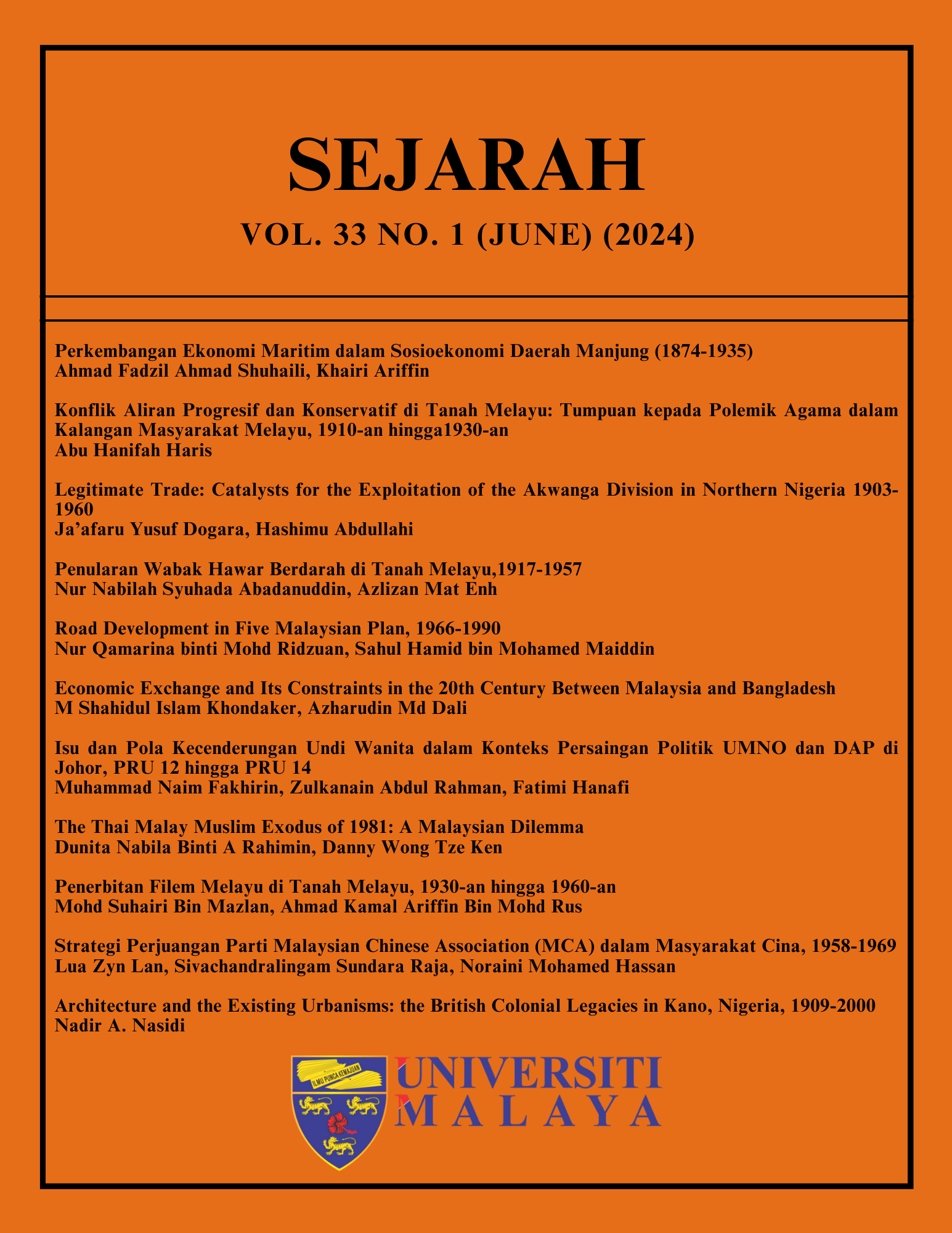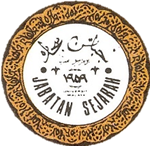Legitimate Trade: Catalysts for the Exploitation of the Akwanga Division in Northern Nigeria 1903-1960
DOI:
https://doi.org/10.22452/sejarah.vol33no1.3Keywords:
Cash Crops, Transatlantic Slave Trade, Legitimate Trade, Catalyst, ExploitationAbstract
Modern Africa emerged fragmented and ravaged after an era of European colonialism. The national economies of the emerging nation-states were grossly deformed and proved to be incapable of meaningful economic growth. Historical research has established that the introduction of taxation, the influx of foreign capital, the activities of marketing boards, and commissioned buying agents served as the vehicles for colonial exploitation. A full account of the triple catalyst for the colonial exploitation of the economy and population of the Akwanga division in northern Nigeria has yet to be jointly examined. This study aims to examine the circumstances that precipitated the exploitation of this area during the colonial period. Attention is given to the colonial conquest and the level of resistance offered by the people of northern Nigeria, in particular the Akwanga division. Emphasis is also given to cash crop production as a cause of economic stagnation, besides examining the extent to which the transatlantic slave trade and the legitimate or free trade were responsible for the lack of development in the Akwanga division. We posit that colonial cash crop production solely benefited the European capitalists while damaging the local economy. The historical method is employed in this analysis, and both primary and secondary sources are consulted in order to achieve the aims and objectives of this work.
Received: 1 November 2023
Reviewed: 6 December 2023
Accepted: 30 June 2024


